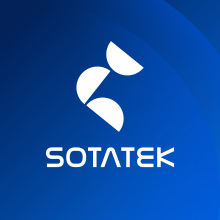
There are 2 Companies in South Korea
that provide Angular Development Services!
South Korea has the potential to give Silicon Valley and China a run for their money. The country has been ranked as the most innovative economy by Bloomberg, dominating international charts in R&D intensity, value-added manufacturing, and patent activity.
Discover Top IT Companies in South Korea specialized in Angular and other related services. Find the best IT service providers for your projects.
Angular (formerly AngularJS) is a popular open-source web application framework maintained by Google and a community of developers. It's used for building dynamic, single-page web applications (SPAs) and web-based applications in general. Angular provides a structured and organized way to create complex web applications by extending HTML with additional features and enabling the development of interactive, responsive, and maintainable front-end web interfaces.
Handpicked companies • No obligation to hire • 100% risk-free
Explore Top Angular Development Companies in South Korea

TechGropse Pvt. Ltd. Verified Company
Seoul, South Korea Head office in: United States
Techgropse is a leading Mobile App and Web Development Company, dedicated to turning innovative ideas into remarkable digital solutions. 500+ Clients

Seoul, South Korea Head office in: Vietnam
Global IT Services & Consulting firm delivering Web, App, Blockchain, AI, Cloud & ERP solutions with 1,300+ experts across 25+ countries.
Filter Angular Development Companies in South Korea by Cities
Find the right tech company near you or from a specific city. Some of the best companies might be located in smaller cities.
Find more Angular Development companies around the world
TechBehemoths is the world's most advanced and user-friendly platform to match IT Companies with real clients without hustle.
The ICT Industry in South Korea: Data & Insights
South Korea has the potential to give Silicon Valley and China a run for their money. The country has been ranked as the most innovative economy by Bloomberg, dominating international charts in R&D intensity, value-added manufacturing, and patent activity.
It’s a melting pot of innovation. Think about it: which other country is competing head-on with Apple in the high-end smartphone race? The East Asian nation is also home to the fastest internet on earth, and broadband services per capita are the highest in the world.
In addition to all, the world is seeing its fourth industrial revolution, spearheaded by digitization, artificial intelligence, robotics, increased connectivity, and autonomous vehicles. Korea could have a huge part to play.
Smartphone and appliance companies in the country have begun adopting artificial intelligence. Samsung’s smartphones are some of the best examples of AI-based voice recognition technology.
Korea is also a leader in digital banking. The first digital-only bank in Korea, K Bank, kicked off recently. One of its backers includes Alipay.
The government has also approved the launch of Kakao Bank, created by Korea’s predominant messaging service, KakaoTalk. Users would be able to perform transactions with friends directly without the hassles of typing bank account numbers.
Why You Should Work With Korean IT Companies
Considered one of the most revolutionary IT markets in the world, South Korea focuses on innovative IT companies with high potential to bring something new in terms of software and technology. In these regards, what is most possible to find in Korea is only innovative IT and software companies that perform according to the best practices and implement the latest technologies into their web and app projects.
Also, when working with Korean IT companies, the linguistic and cultural barriers are less visible than… let’s say 5 years ago. Skilled professionals have already learned and adapted to Western business models, and most of them work in this environment, having proven experience in this direction.
What You Should Be Aware of When Working With Korean IT Companies
What you should expect from Korean IT companies is to get a quote for a web project that is relatively expensive compared to the European market. As of 2025, the average salary in the Korean IT industry reaches between $18,000 and $86,400 per year. In countries like Spain, Portugal, and Ireland, you may find companies that provide the same services for lower rates, and, respectively, web developers in those countries receive between 22K-29K USD/ year.
Is the investment worth it? It’s up to each client to decide since working with an IT company from one or another country depends on the geographical location, the market to which the product is designed, the project’s goal, and many other reasons.
How Reliable Are Korean IT Companies
In terms of reliability, Korean IT companies are considered among the most trustworthy in the entire world. This is related to factors such as innovation progress, technological leadership, ease of doing business in the country, facilities for digital agencies, and skilled professionals working in the tech and IT industry, and also due to business culture, tradition, and environment.
How Well Does the Korean IT Sector Relate to the Neighboring Countries?
In the geographical proximity, the Korean IT sector competes with the Japanese and Chinese ones. Both countries are already regional tech hubs, but also Korea. Known as one of the four Asian Tigers, South Korea seeks to become a competitive market and a better alternative to Japan and China, but also to Hong Kong, Singapore, and Taiwan.
The latest trends reveal that it has all the chances, but trends do change, and so does the leadership.
What is Angular and what are its benefits for your projects?
Angular (formerly AngularJS) is a popular open-source web application framework maintained by Google and a community of developers. It's used for building dynamic, single-page web applications (SPAs) and web-based applications in general. Angular provides a structured and organized way to create complex web applications by extending HTML with additional features and enabling the development of interactive, responsive, and maintainable front-end web interfaces. Here are some key aspects and concepts of Angular:
-
Component-Based Architecture
-
Templates
-
Directives
-
Dependency Injection
-
Services
-
Routing
-
Observable and RxJS
-
Modules
-
Testing
-
Cross-Platform
Angular's structured approach, strong tooling, and vibrant ecosystem of libraries and extensions make it a powerful framework for building modern web applications. It is particularly well-suited for large and complex projects where maintainability and scalability are crucial.
Companies may choose Angular over other front-end frameworks for their projects for a variety of reasons, depending on their specific needs and priorities.
-
Google Backing: Angular is developed and maintained by Google. This association often gives companies confidence in its long-term support, stability, and continuous improvement. Google's involvement is seen as a sign of reliability and commitment to the framework.
-
Mature and Established: Angular has been around for a while and has a strong track record of being used successfully in large-scale enterprise projects. It has a well-defined architecture and best practices, which can be beneficial for maintaining and scaling applications over time.
-
TypeScript Support: Angular is built with TypeScript, a statically-typed superset of JavaScript. TypeScript provides better tooling, code maintainability, and catches errors at compile time, which can reduce bugs and enhance code quality, making it attractive to companies that prioritize robust code.
-
Full-Featured Framework: Angular provides a comprehensive set of tools, libraries, and features out of the box, including routing, form handling, HTTP client, and more. This can save development time and effort compared to integrating multiple third-party libraries in other frameworks.
-
Two-Way Data Binding: Angular offers powerful two-way data binding, which allows for automatic synchronization between the data model and the view. This feature can make it easier to develop interactive and responsive user interfaces.
-
Large and Active Community: Angular has a large and active community of developers and a wealth of resources, including documentation, tutorials, and third-party libraries. This can be beneficial for finding solutions to common problems and getting support when needed.
-
Enterprise-Ready: Angular provides features like dependency injection, modularity through modules, and a strong emphasis on testability. These characteristics are well-suited for building robust and maintainable enterprise-level applications.
-
Strict Coding Standards: Angular enforces a set of coding standards and best practices, which can lead to more consistent and readable code. This can be important for companies with multiple developers working on the same codebase.
-
Cross-Platform Development: Angular can be used for building both web and mobile applications. Companies looking to develop applications for multiple platforms may choose Angular for its ability to share code between web and mobile apps using technologies like NativeScript or Ionic.
-
Integration with Backend Technologies: Angular can easily integrate with various backend technologies and APIs. This makes it suitable for projects where the front end needs to communicate with different types of server-side applications.
-
Security Features: Angular provides built-in security mechanisms to help prevent common web vulnerabilities like Cross-Site Scripting (XSS) and Cross-Site Request Forgery (CSRF). This can be crucial for projects with high security requirements.
-
Ecosystem and Tooling: Angular has a rich ecosystem of tools, extensions, and IDE support, including Angular CLI for project setup and management. This can streamline development workflows and improve productivity.
Ultimately, the choice of Angular or any other framework depends on the specific project requirements, the development team's expertise, and the company's long-term goals. Companies evaluate various factors to determine which framework aligns best with their needs, resources, and priorities.